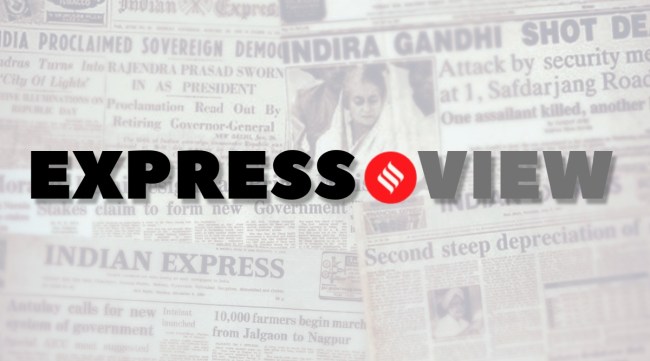Opinion Ghulam Nabi Azad’s party undone
The delay in holding assembly elections in J&K is unconscionable especially as the government repeatedly declares that the security situation is under control. The travails of Azad's outfit point to the political vacuum still to be filled in Kashmir
 A new political tier was inserted by holding elections for the District Development Council. Delhi's attempt seemed to be to create a new political class, and wear down the established political parties in the Valley.
A new political tier was inserted by holding elections for the District Development Council. Delhi's attempt seemed to be to create a new political class, and wear down the established political parties in the Valley. The quick unravelling of the Democratic Azad Party, floated by Ghulam Nabi Azad after his exit from Congress, points to the difficulties for players in navigating the shifting political terrain in Jammu & Kashmir in the long absence of elected representatives. The last election for the J&K legislative assembly was in 2014. The Assembly was dissolved in November 2019, months after the BJP pulled out of the PDP-led ruling alliance and the government fell. The dissolution was controversial, and as it turned out, a precursor to the August 5, 2019 revocation of special status and division of the state into two Union Territories. It ensured that no elected government would be in place at that time to oppose or argue with the constitutional changes. The Centre’s decision to jail political leaders of the main regional parties to prevent them from mobilising against the August 5 decisions deepened the political vacuum.
A new political tier was inserted by holding elections for the District Development Council. Delhi’s attempt seemed to be to create a new political class, and wear down the established political parties in the Valley. The coming together of the National Conference, PDP, CPM, J&K People’s Conference and a few other parties for the DDC elections posed a new challenge for the Centre. The alliance showed that the old regional parties still had a following. Against this background, the arrival of the DAP suggested the possibility of an election in the offing. The revision of electoral rolls after the completion of the delimitation exercise also pointed in this direction. However, it seems now that the next testing ground may be the J&K panchayat elections in 2023. An indication of this came with the State Election Commission’s order to officials to update the panchayat election rolls. The results could provide a hint of whether and when the Assembly elections might be held in the new year.
The delay in holding assembly elections in J&K is unconscionable especially as the government repeatedly declares that the security situation is under control. It encourages the impression that it is Delhi’s inability to turn the political climate in the Union Territory in a desirable direction that is causing the delay. The churn in the DAP, with exits of several Jammu region stalwarts — now it appears to be a party of the Chenab Valley only — who had left the Congress to join Azad, is comparable only to the high levels of discontent in the BJP’s Jammu unit. Who else will leave Azad might become apparent when the Bharat Jodo Yatra reaches Jammu in the new year.





